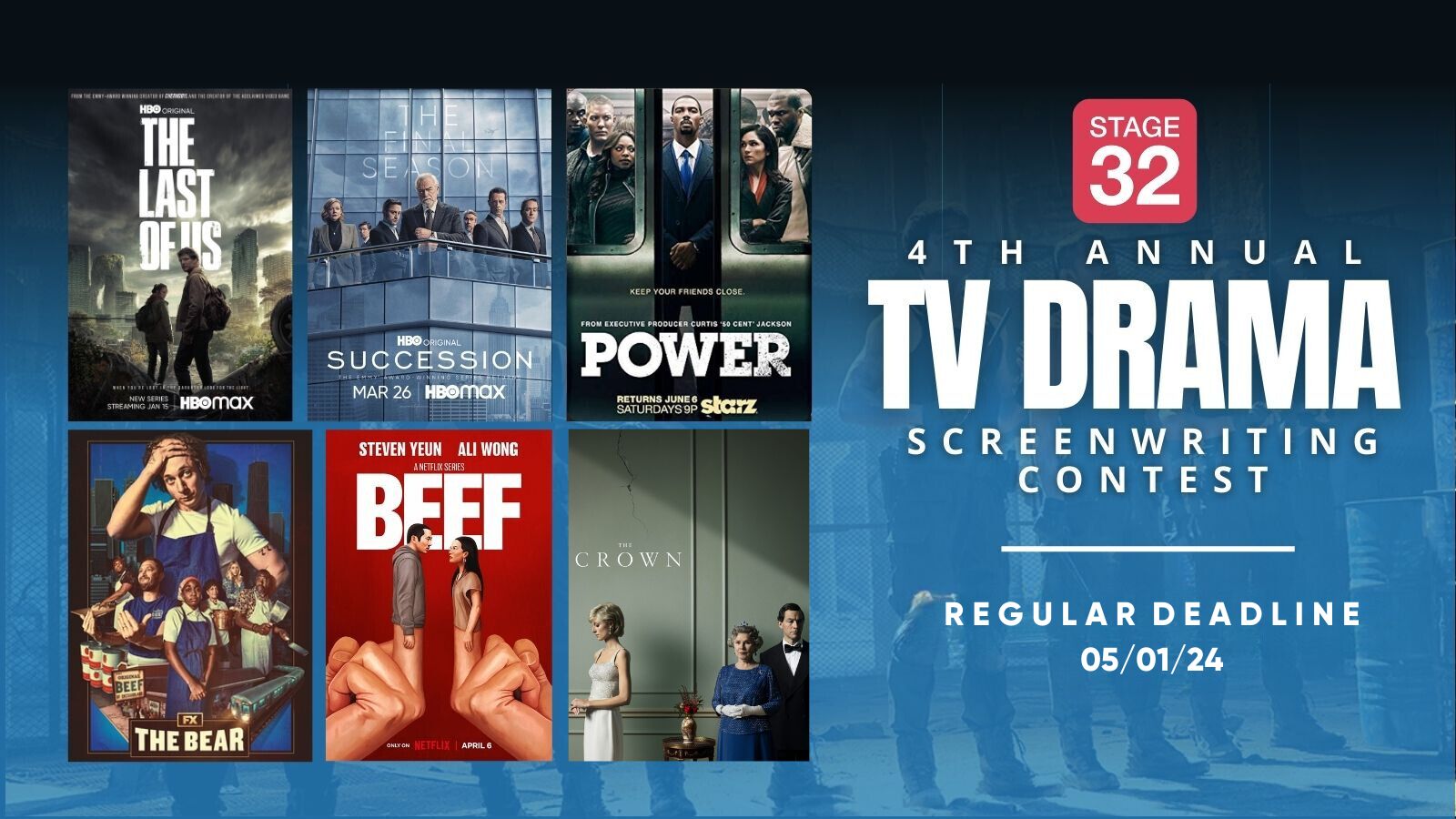Hi All, I had an acting workshop called Casting for TV yesterday, and it really surprised me how DIFFERENT it is to casting for stage -- have any of you had this experience? What are your thoughts on different audition techniques for a variety of formats?



1 person likes this
Yeah, it's night and day Ciara. For example in L.A. for a film or TV show you often do a read in a small office, almost like if you were going for a regular job interview. They are friendly, chitchat a little and then you do your thing.
Then in NYC theatre auditions, you're in a huge room, no pleasantries are exchanged, you have to stand behind a line and often a stopwatch is pulled out to make sure you don't go over the 2 mins on your monologue. They will cut you off mid-speech.
If L.A. is Paula and Randy, NYC is Simon Cowell lol
BUt the acting styles are so different, it's hard enough to be a good actor, but to also switch from stage to on-camera? That's why I think all actors should make a choice and pursue what they prefer - theatre or film/TV. And then they should narrow it down further to what types of roles they want to do, what types of directors and screenwriters they most want to work with.
2 people like this
I teach a class in LA for professional actors and they all work a lot. I tell them that the approach to film and theater is the same. You have to know what you are Fighting For, to change your partner in some way. You have to have a strong first line which is not just a lead up to the scene. For example, if it is just a greeting make sure with the "Hi," to make them know you are angry or in love or their superior. Put a button on the scene at the end with a final silent message before turning to the auditors. I am a film director and theater director and I have auditioned hundreds of actors. Most auditions are boring to watch! Too many actors play it safe. Dare to use silences. Always use some kind of humor even if it is just a mocking laugh or a nervous laugh. Use LOTS of energy and charm. Energy gets you work. Some actors think that film needs a soft voice. No! Use your regular energetic voice. Stage acting means your voice has to reach to the last seat but that doesn't mean that you bellow. You can still have silences and soft moments. If a casting director uses those awful words, "take it down" (which means they are not a top casting director) then don't jettison your performance and choices, just lower your volume or get more vulnerable. Get coached! I coach some top actors and there isn't a time that I can't add a moment or a backstory or a silence that makes them rise above the crowd. You should always look for choices that others won't do, because those moments wake up the auditors. Check out DerynWarren.com and read a chapter of How to Make Your Audience Fall in Love With You, for more tips for your auditions. I love actors!
2 people like this
Here is an article I wrote for Backstage which might give you more help. The Audition Check List BY DERYN WARREN Know what you are fighting for. Make sure your goal, your intention or your motivation so exciting that your stomach muscles are tight and your energy is high. Then raise the stakes higher. If you are fighting to pick up a woman don’t tight to get a date. Raise the stakes by choosing that you’ll kill yourself if she refuses you. Fight to win. Have strong actions for your first and last lines. Even if the first line is “Hello,” don’t make it a lead up. Say hello to scare your partner or show who is in charge or tell them you love them. Your last line creates an ending. Don’t turn to the auditors after your last line. Give your partner a final message. Start immediately. Chat briefly to the casting people and start! Don’t bore auditors by preparing in the room. If your boyfriend left your car a mess, again, you don’t take a few breaths, laugh nervously, and wring your hands. You yell at him as soon as you see him. Use energy. Often actors talk with charm and energy when they walk into the room, and then when they begin “acting,” they lose their personality. They are trying not to overact, but they are dull. Energy is sexy, fun, gets you noticed, and gets you work. Use your full voice, not some whispery “acting voice.” Casting directors cast you for your unique personality. If your reader is not giving you energy, act as if the reader is fighting just as hard as you are. If the scene is hushed, make it energetic with intensity. Learn a perfect technique. For an important audition, use a coach. Memorize the sides, but hold the script up to the side of the person you are speaking to, and don’t flap it up and down. Then it becomes invisible. Never set it on a table. If you wear glasses to read, greet the auditors without your glasses, put them on, read the scene, and take them off to say goodbye. Know how to position your body so you are seen. Do not get upstaged. If it is an on-camera audition, know how far you can move before going out of frame. Dress for the part. Wear jeans for a young mom, or a suit for a lawyer, but only approximate the costume of a bishop. If you flub, keep going. Never ask to start over or comment with a grimace on your performance. One of my student’s cell phone rang in the middle of a TV audition. He grabbed it out of his pocket, yelled, “Not now!” and carried on. He got the job. Use the exact words of the script. Don’t adlib. Never sigh or say, “Uh.” Would you say,“ I, uh, love you?” or “The car is about to, uh, crash?” Sighs let out your energy of the scene. “Uhs” are sloppy. If the casting director says, “Take it down,” do not jettison your preparation. Lower your volume or find the vulnerability. Find the specifics and the images. If the script says, “He’s dumb and stupid,” don’t treat these adjectives as identical. If the line is, “We can bang on the door or yell through the vent,” dare to physically act out both choices to create images for your partner. Find the silences. Silences attract the attention of the room. Filled silences are riveting. Too many actors talk right away after they receive big news. Wait. Absorb the news. If you’re slapped, don’t scream at the person right away. Receive the slap and then speak. I heard an old actor say to a young actor, “I can do more with my silences than you can do with your lines.” Use humor in every scene. In “Beginners,” Christopher Plummer smiles as he gets the news he has cancer--a fascinating choice that showed courage. Such humor should be sprinkled throughout all your work, including drama. In my book, I say, “Great actors give themselves the freedom to laugh in places that lesser actors wouldn’t dare.” Take pleasure in your wins. Hannibal Lector was proud of his brilliance! Most laughs are social laughs or scared laughs and have nothing to do with funny. Play humorous games with lines. If the line is “I’m miserable,” don’t do it straight. Dare to laugh or groan or mock stab yourself. Risk! Everyday life is dull. Raise the stakes. Dare to jump up and down on that bed like Brad Pitt in “Thelma and Louise.” Casting directors love energy and subtext. They love to hear a line delivered in a new way. Go beyond the obvious. Don’t use your ordinary self. Use your extraordinary self. Deryn Warren is a film director, L.A. acting teacher, coach, and the author of “How to Make Your Audience Fall in Love With You.” Contact her at "DerynWarren.com"
Good stuff!
As an actor for both stage and film, I don't see the difference. People say that it is completely different, yet I only see a difference in the scope. On stage, your audience is fixed, and you have to adjust your performance depending on the size and closeness of the audience. In TV/Film, the audience (or camera) can move and pan, and you still have to adjust your performance depending on where and how close that camera is. In regards to building character, working with other actors, taking direction, and creating believable performances, I find them both the same. It is only in certain technical aspects that any difference exists.
1 person likes this
Jeff "It is only in certain technical aspects that any difference exists." well that's a pretty big aspect! There are things you can get away with on stage that you can't get away with on camera and vice versa. You're operating at a whole different sweet spot in terms of range, how big or small you can go.
In film, you can just "be". If you just "be" on stage, that's not enough. Doesn't mean don't be truthful, but from that truth you do then put on a performance and elevate what you're doing to fill the room and be technically heard by the last row.
1 person likes this
I disagree. In my experience, it has only been to extend the awareness of the scope of the performance. When performing on stage to a small theatre, where the audience is close and intimate, you reduce the performance because there is no need to physicalise your expressions, as you would do in a large theatre with a very distance audience. In film, you can push that intimacy and closeness even further. Being aware of you scope as an actor in with film and theatre is the important consideration from a technical stand point. Beyond that, there is little if any difference. I still create characters in the same way, I still develop a reaction to my co-actors in the same way, that doesn't change. For me at least, wrapping my head around the difference between theatre a film is not that hard. Maybe this is just something I experience. I don't know.
1 person likes this
whatever works, bro! I think as actors we have our own way of approaching things and i hear what you're saying. For me, I need to segregate the two mediums (media?) as they feel substantially different as I tackle them. You get my drift.
2 people like this
That I totally get. Everyone has their own groove. I guess my biggest concern is that the differences are often over stated, and many young actors I have worked with have often expressed a deep reluctance to try the other side because of this perceived great divide. I try to show them the differences are not that extreme.